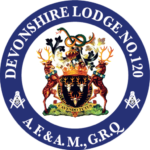Freemasonry stands as one of the oldest and most esteemed social and charitable organizations globally, with its origins deeply embedded in the time-honored traditions of medieval stonemasons.
A Heritage Rooted in Tradition
These skilled craftsmen, who played a pivotal role in constructing the magnificent cathedrals and castles that grace our landscapes, laid the groundwork for the fraternity we recognize today.
Building Cathedrals and Brotherhood
In the medieval era, stonemasons formed tightly-knit communities, passing down their knowledge, skills, and values from generation to generation. As they erected grand structures that would stand the test of time, these craftsmen established a unique bond — a brotherhood forged in the crucible of labor, craftsmanship, and shared purpose.
The Transition to Freemasonry
As time progressed, the operative stonemasons transitioned into speculative Freemasons, opening their doors to individuals beyond the craft of stone construction. This transformation marked the birth of a symbolic and philosophical journey, where the tools of the trade became emblems of moral and ethical teachings. The square and compass, once wielded for architectural precision, now served as symbols of virtue and enlightenment.
Preserving Tradition in Modern Times
Today, Freemasonry preserves the rich traditions of its medieval roots while adapting to the needs of contemporary society. The fraternity continues to uphold the values of brotherhood, integrity, and charity, mirroring the solidarity and mutual support found among the medieval stonemasons. Freemasonry’s journey from the medieval stonemasons to the present day is a testament to its resilience, adaptability, and enduring relevance. It welcomes individuals to participate in a living tradition that bridges the past with the present, offering a unique opportunity for personal growth, fellowship, and the pursuit of timeless wisdom.
The World of Freemasonry
As an ancient and esteemed fraternal organization, it has captivated the imaginations of individuals for centuries. Rooted in tradition and steeped in symbolism, Freemasonry is more than just a secret society; it’s a timeless journey of self-discovery, personal growth, and community service.
Core Principles
At its core, Freemasonry is built on a foundation of timeless principles: brotherhood, integrity, and the pursuit of knowledge. Freemasons, also known as “Masons,” strive to cultivate moral and ethical virtues in their personal lives while fostering a sense of unity and solidarity within the global Masonic community.
Symbolism and Rituals
Central to Freemasonry are its rich symbols and rituals. These elements, carefully passed down through generations, serve as a powerful means of conveying profound truths and teachings. The square and compass, the apron, and the working tools are just a few examples of the symbols that hold deep significance within Masonic philosophy.
Community and Charity
Beyond its esoteric teachings, Freemasonry places a strong emphasis on community service and charitable endeavors. Lodges, the basic organizational units of Freemasonry, often engage in philanthropic activities to contribute positively to society. This commitment to making a difference is a fundamental aspect of the Masonic ethos.
Guiding principles of Freemasonry
Brotherhood
Freemasonry champions an unwavering bond of brotherhood, fostering unity and mutual support among members, transcending differences.
Integrity
Built on the cornerstone of integrity, Freemasonry imparts a commitment to moral and ethical conduct, upholding honesty and trust in every action.
Charity and Service
At its core, Freemasonry is synonymous with benevolence, actively engaging in philanthropy and service to create a positive impact in communities.
Enlightenment and Knowledge
Freemasonry encourages a continuous pursuit of knowledge and self-improvement, guiding members through a symbolic journey of intellectual and spiritual enlightenment.
Tolerance and Diversity
Embracing diversity, Freemasonry promotes tolerance, fostering an environment where members appreciate and respect differences in opinions, backgrounds, and beliefs.
Secrecy and Discretion
Valuing discretion, Freemasonry maintains the confidentiality of its rituals, creating an atmosphere of trust and solemnity within the Masonic experience
Ritual and Symbolism
Central to Freemasonry are transformative rituals and symbols, serving as a language that conveys profound truths and moral lessons beyond words.
These guiding principles form the essence of Freemasonry, providing a framework for personal growth, community service, and a deeper connection among members. Aspiring Masons are invited to embody these principles, contributing to the enduring legacy of this venerable institution
